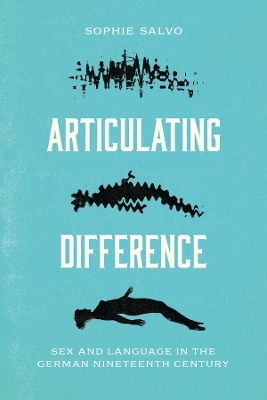
Articulating Difference
University of Chicago Press (Verlag)
978-0-226-82772-8 (ISBN)
Drawing on a wide range of texts, from understudied ethnographic and scientific works to canonical literature and philosophy, Sophie Salvo uncovers the prehistory of the inextricability of gender and language. Taking German discourses on language as her focus, she argues that we are not the inventors but, rather, the inheritors and adapters of the notion that gender and language are interrelated. Particularly during the long nineteenth century, ideas about sexual differences shaped how language was understood, classified, and analyzed. As Salvo explains, philosophers asserted the patriarchal origins of language, linguists investigated “women’s languages” and grammatical gender, and literary Modernists imagined “feminine” sign systems, and in doing so they not only deemed sex-based divisions to be necessary categories of language but also produced a plethora of gendered tropes and fictions, which they used both to support their claims and delimit their disciplines.
Articulating Difference charts new territory, revealing how gendered conceptions of language make possible the misogynistic logic of exclusion that underlies arguments claiming, for example, that women cannot be great orators or writers. While Salvo focuses on how male scholars aligned language study with masculinity, she also uncovers how women responded, highlighting the contributions of understudied nineteenth-century works on language that women wrote even as they were excluded from academic opportunities.
Sophie Salvo is assistant professor in the Department of Germanic Studies at the University of Chicago, affiliated with the Center for the Study of Gender and Sexuality.
Introduction
Language Study and Its Disciplines
Gender and Language in the History of Knowledge
1. Gendered Origins
One Male, the Other Female
Herder and the Labor of Language
Fichte, Language, and “Beings of Man’s Own Kind”
Wilhelm von Humboldt and the Matter of Form
2. “Women’s Language” and the Language of Science
Constructing “the Primitive”
Historical Characterizations of Women’s Speech
Weibersprache Universalized
The Euphemistic Language of Women
“Women’s Language” into the Twentieth Century
3. The Sex of Language: Grammatical Gender
Grammatical Gender as Capricious Category
Heterosexual Nouns
Gender’s Necessity
A Meaningless Form
4. Women Writing on Language
Carla Wenckebach’s Universal Subjects
The Self-Creations of Carolina Michaëlis de Vasconcellos
Elise Richter’s Androgynous Diagrams
5. Modernism’s Masculine Language Crisis
Hofmannsthal’s Female Bodies
Feminine Language and Narrative Form in Musil
Uncomprehended Symbolism
Coda. Gender and Language Today
Acknowledgments
Notes
Bibliography
Index
| Erscheinungsdatum | 04.09.2024 |
|---|---|
| Zusatzinfo | 5 halftones |
| Sprache | englisch |
| Maße | 152 x 229 mm |
| Gewicht | 340 g |
| Themenwelt | Geisteswissenschaften ► Geschichte |
| Geisteswissenschaften ► Sprach- / Literaturwissenschaft ► Anglistik / Amerikanistik | |
| Geisteswissenschaften ► Sprach- / Literaturwissenschaft ► Literaturwissenschaft | |
| Geisteswissenschaften ► Sprach- / Literaturwissenschaft ► Sprachwissenschaft | |
| Naturwissenschaften | |
| ISBN-10 | 0-226-82772-0 / 0226827720 |
| ISBN-13 | 978-0-226-82772-8 / 9780226827728 |
| Zustand | Neuware |
| Haben Sie eine Frage zum Produkt? |
aus dem Bereich


